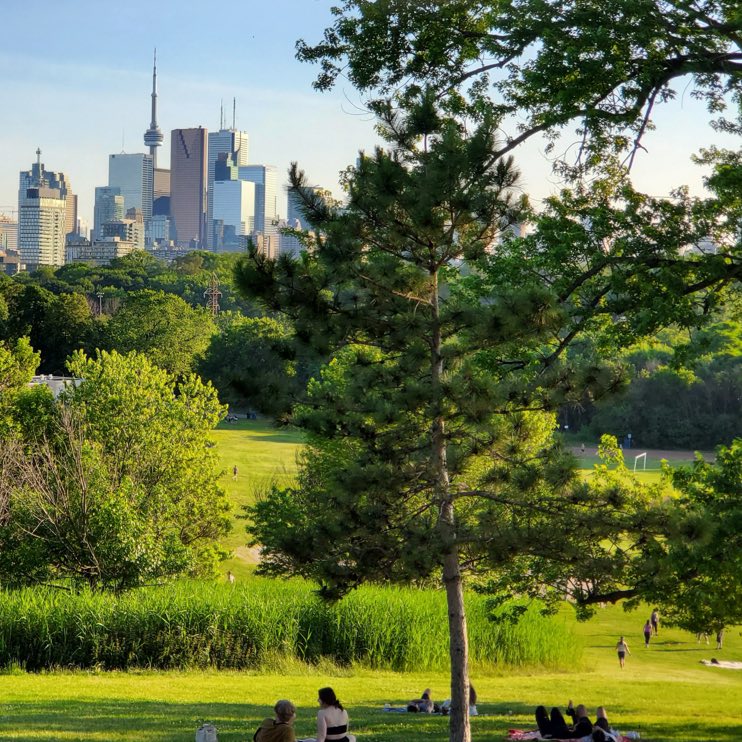Navigating the search for exemplary high schools in Toronto can be likened to charting a course through a vast academic archipelago. Each island, or school, boasts unique landscapes of scholastic excellence and extracurricular distinction, presenting a horizon brimming with possibilities. Diligent exploration and informed decision-making can ensure your child anchors at an institution that cultivates academic prowess, fosters social growth, and charts a course for future success.
Assessing Toronto’s School Landscape
Navigating the educational offerings in Toronto requires a nuanced approach that goes beyond mere rankings or hearsay. Recognizing the diversity of each institution, it is crucial to evaluate the alignment between a school’s academic ethos, its extracurricular landscape, and your child’s individual learning style and ambitions. Such an assessment ensures that the chosen high school provides a fitting environment for your child’s educational journey.
In understanding the vast network that forms Toronto’s high school system, one must also consider the “Specialized Program High Schools,” which cater to different areas of interest and expertise. These programs range from arts to sciences, offering tailored curricula that nurture students’ specific talents. Thus, in isolating the right fit for your child, consider not only the academic rigor and reputation of a school but also the unique programs and opportunities that will foster their potential and kindle their intellectual curiosity.
Public vs. Private: Navigating Choices
In the heart of Toronto’s educational landscape, public and private high schools represent divergent paths, each with distinct advantages and particular considerations. Parents must weigh factors such as academic rigour, cultural ethos, and the specific needs of their child, ensuring a fitting academic sphere.
Private institutions often boast smaller class sizes and enhanced resources, forming an environment conducive to individualized attention. Public schools, on the other hand, offer diverse student bodies and a broad spectrum of extracurricular opportunities, reflecting the city’s multicultural essence.
Toronto’s top-tier private schools frequently feature on national excellence lists for their scholastic achievements and innovative programs.
Yet, the final decision hinges on the alignment between a school’s offer and your child’s aspirations. Whether considering private or public high schools in Toronto (each subject to stringent academic standards), the optimal choice will integrate seamlessly with your child’s learning style, interests, and future goals.
Rankings & Performance Metrics
In Toronto, high schools are evaluated through various performance metrics that shed light on their educational quality and environment.
These assessments, from standardized test scores to graduation rates and post-secondary placement, paint a detailed picture of school efficacy. Prospective lists, such as the Fraser Institute’s annual ranking of Ontario high schools, provide a numerical score based on academics, offering a benchmark comparison against provincial averages. These metrics, although insightful, are just one piece of the complex puzzle that is education quality.
Importantly, parents should consider the methodologies behind these rankings. It is vital to understand what each metric measures, how it might align with your child’s needs, and whether it reflects the diverse learning experiences that a school provides. Rankings can inadvertently overlook factors such as extracurricular programs, social environment, and student well-being, which all play pivotal roles in the educational experience.
Furthermore, actively engaging with school communities is advisable. Attending open houses, speaking with teachers and alumni, and reading official inspection reports can offer invaluable insights into a school’s ethos and day-to-day operations. These qualitative aspects, while not quantifiable like rankings, often hold the key to understanding how a school might nurture a student’s holistic development, far beyond mere academic outcomes.
One of the best aspects of Toronto is how welcoming it is for your whole family! Find out more in the posts below:
- Toronto: A Pet-Friendly City that Welcomes Furry Companions
- Does Toronto Have World-Class Amenities?
- Best Toronto Neighbourhoods For Small Kids
Specialized Program Offerings
Toronto high schools are renowned for their diverse specialized programs, which cover areas such as STEM (science, technology, engineering, and mathematics), visual and performing arts, and business and leadership-focused curricula. These offerings, carefully designed, cater to the varied interests and talents of students, potentially shaping their future career paths and academic pursuits.
Each specialized program may have distinct selection criteria and application processes. Prospective students should ensure they meet the prerequisites before applying to these focused disciplines.
For instance, some programs demand a proficiency in certain subjects or submission of a portfolio (such as for arts programs) to gauge suitability. These preconditions are intended to ensure that students are adequately prepared for the rigor of specialized coursework.
Moreover, such programs are often bolstered by partnerships with universities, industry professionals, and community organizations. These collaborations can enhance the learning experience by providing practical applications, valuable networking opportunities, and exposure to real-world challenges.
Parents should note that enrollment in these programs is frequently competitive, and due to high demand, sometimes subject to lottery systems or waitlists. This underscores the importance of early investigation and preparation to navigate the application process with due diligence and efficiency.
Ultimately, the choice of a specialized program should align with a student’s passion and educational objectives. Careful consideration of each school’s specialized offerings can be a significant factor in the decision-making process, influencing the trajectory of a student’s educational journey.
Key Factors for Academic Success
Understanding student-teacher ratios is critical when assessing high schools. A lower ratio often equates to more personalized instruction and better academic outcomes, as educators can allocate more time to addressing individual student needs. Schools that maintain small class sizes show a commitment to fostering an environment conducive to academic excellence, a vital element parents should closely scrutinize.
The caliber of the faculty is equally paramount to a student’s academic success. Teachers at high-performing schools typically possess not only prerequisite qualifications but often advanced degrees in their subjects, coupled with a passion for teaching. They act as mentors and guides, instilling critical thinking and a love for lifelong learning beyond the curriculum. When evaluating potential schools, consider the professional development opportunities they offer to their faculty, as these will reflect directly on the quality of education your child receives.
Teacher Qualifications & Student Support
In Toronto high schools, teacher qualifications are a cornerstone of educational excellence.
- Ontario College of Teachers Certification: All educators must be certified, ensuring they meet rigorous provincial standards.
- Advanced Degrees: Many teachers possess Master’s or Doctoral degrees in their subject area, reflecting a deep knowledge base.
- Ongoing Professional Development: Schools often provide continuous training opportunities to keep teachers abreast of educational advancements.
- Specialized Instructional Staff: Support for students with special needs is facilitated by educators with targeted training.
- Guidance Counsellors: These professionals play a pivotal role in student well-being and post-secondary planning.
- Extracurricular Advisors: Beyond academics, teachers often spearhead clubs and teams that foster diverse interests and skills.
Dedicated support structures ensure that every student’s educational journey is carefully navigated.
This composite approach underscores a school’s commitment to not just teach, but to nurture and inspire.
Extracurricular Opportunities
Extracurricular activities provide an expansive canvas for students to paint their personal and group achievements, bridging academic rigour with life-skills development. Beyond classroom walls, clubs, teams, and organizations serve as fertile grounds for leadership, collaboration, and personal growth.
Toronto’s diverse school offerings include arts, athletics, and STEM-based clubs. These outlets support the holistic development of students by fostering social interaction and teamwork.
Schools often boast competitive sports teams that vie for citywide recognition, offering a spirited environment for camaraderie and personal discipline. Such athletic pursuits complement the intellectual challenges within classrooms.
STEM and academic clubs provide a laboratory for innovation where students test theories and engage in problem-solving, often participating in regional or national competitions that celebrate intellectual pursuits.
Many schools also nurture the arts through drama clubs, music programs, and visual arts, recognizing the importance of creativity in shaping well-rounded individuals. These programs are pivotal in cultivating an appreciation for cultural diversity and artistic expression.
Furthermore, involvement in student government and volunteer initiatives instill a sense of civic responsibility and leadership. Through these experiences, students contribute to their community and develop essential communication and organizational skills.
Modern Facilities & Resources
Toronto’s high schools are stepping up.
The commitment to education is visible in Toronto high schools’ capital investments. Upgraded science laboratories, technologically advanced classrooms, expansive libraries, and top-tier athletic facilities represent a significant push to create environments that stimulate academic and personal growth. Notably, some schools offer specialized equipment and spaces for unique programs like film production or robotics, reflecting an alignment with current and future industry demands.
Investments continue despite fiscal challenges.
A shift towards enhancing the learning environment is clear. From green energy-powered campuses to inclusive design principles that ensure accessibility for all students – these enhancements are at the forefront of providing a forward-thinking educational experience within Toronto’s educational institutions.
The timeline for completion aligns with enrollment schedules. Carefully planned renovations and expansions are set to accommodate the needs of the 2023-2024 student population. These deliberate upgrades embody the broader goals of the Toronto District School Board to provide contemporary, supportive, and personally enriching educational spaces within the city.
The Enrollment Process Simplified
Navigating the enrollment procedures for Toronto high schools need not be daunting. The initial step involves determining your child’s designated school based on your residential address, a task easily accomplished through the Toronto District School Board’s website.
As second-stage action, parents must gather the required documentation, which encompasses proof of the child’s age and citizenship, a record of residence, and the child’s academic history. It’s critical to adhere to stipulated deadlines for submission to ensure placement opportunities.
Finally, “open houses” and “information sessions” serve as pivotal resources in making an informed decision regarding your child’s educational journey.
Admission Requirements & Deadlines
High school admission in Toronto is contingent upon satisfying specific prerequisites. Prospective students must adhere to criteria established by each institution, entailing academic qualifications and residential zone requirements.
Increasingly, Toronto high schools are employing a holistic approach to admissions, considering not only academic records but also extracurricular participation, volunteer experience, and personal essays. The aim is to cultivate diverse student bodies, providing equity of opportunity and fostering inclusive environments. Critical timelines govern this multifaceted admissions process, emphasizing the need for proactive planning and timely submissions.
For specialized programs, such as arts-focused schools or STEM (science, technology, engineering, and mathematics) academies, additional materials may be necessary. Prospective student portfolios, audition tapes, or science fair projects can be among the supplemental submissions required to demonstrate the applicant’s aptitude and passion in their field of interest.
The most salient advice for parents is to commence the application process well in advance of the deadlines. With meticulous care given to each application component, the possibility of acceptance is heightened. Remember that each high school possesses its own set of deadlines, typically falling between late fall and early winter. Early preparation allows for thorough completion of the application materials and provides a buffer against unforeseen circumstances that may arise.
Tips for Successful Applications
When constructing your child’s application, remarkable attention to detail is paramount. This careful approach ensures that all documents reflect the highest level of completeness and professionalism.
In crafting a persuasive application, it is essential to articulate your child’s distinctive qualities and academic pursuits, aligning them with the ethos and offerings of the desired school. Emphasize not only the academic achievements but also the extracurricular involvements that illustrate your child’s well-roundedness and commitment to growth. Understand that admissions committees are seeking candidates who will contribute positively to their school community.
Furthermore, garnering strong recommendations is a cornerstone of a compelling application. Preferably, these should come from educators who can attest to your child’s intellectual and social capabilities, illuminating their potential to excel in a challenging academic environment.
Finally, an often-overlooked aspect of the application process is the importance of personalized responses. Articulate why your child is drawn to a particular program or school, showing clear intention and understanding of what the institution stands for. A customized approach demonstrates to admissions committees the genuine interest your child has in the opportunities they offer, often making a resounding impression.
Open Houses and School Tours
Open Houses and School Tours serve as pivotal opportunities for families to gain firsthand insights into the educational environments their children may inhabit. These events allow for an immersive experience within the school’s daily milieu, providing a tangible sense of the atmosphere and culture.
During these visits, prospective students and parents can observe classrooms in action, witness student-teacher interactions, and evaluate the facilities and resources that a school offers. They afford a unique vantage point to ascertain the school’s strengths and focus areas, facilitating informed decision-making about potential fits. Engage openly with faculty, administration, and, if possible, current students to paint a comprehensive picture of the educational experience.
Moreover, taking part in school tours underscores a family’s keen interest in a prospective school. By demonstrating this level of engagement, families convey to school administrators their serious consideration of the institution. This can provide crucial contextual information when assessing the suitability of a school for your child’s educational goals and personal development.
Additionally, attending Open Houses and School Tours equips parents with the essential knowledge to help their children navigate the transition to a new school. Familiarizing oneself with the school’s academic and extracurricular offerings, as well as its ethos and values, assures that the chosen institution aligns with the family’s expectations, thereby fostering a supportive and conducive learning environment for the student.
Ensuring a Well-Rounded Experience
In the pursuit of quality education, it is paramount to consider not only academic rigor but also opportunities for personal growth and development. Toronto high schools offer a diverse array of programs that cater to a well-rounded student experience, including visual and performing arts, competitive sports, and various clubs and leadership initiatives. Evaluate the breadth and depth of these extracurricular activities as they are vital in shaping critical thinking, teamwork, and social skills. Furthermore, review the school’s commitment to student well-being and support services. A school that prioritizes a holistic educational approach can significantly impact your child’s overall success and satisfaction.
Community Involvement & Diversity
Toronto is a melting pot of cultures, and its schools reflect this rich diversity. Embracing various cultural heritages within educational institutions fosters understanding and inclusivity among students from all walks of life.
In Toronto, schools actively participate in events that celebrate this diversity, such as multicultural fairs and international language days, which facilitate cultural exchange and global awareness. Within these walls, students are encouraged to value diversity as a strength, fostering an environment that is not just tolerant, but inclusive and embracing of various ethnic, linguistic, and social backgrounds. This multicultural fabric is an invaluable aspect of the educational experience, offering insights and perspectives that transcend the classroom.
Moreover, community involvement is an essential component of a school’s framework. Toronto high schools often collaborate with local organizations and businesses to offer students experiential learning opportunities. These partnerships may result in mentorship programs, internships, or community service initiatives that develop civic responsibility and enhance a student’s practical skills in real-world settings.
Furthermore, involvement in various non-profit projects within the community can be an enriching educational pursuit. Students learn first-hand about the workings of charitable organizations and the impact of community service. Such engagements contribute significantly to character building, instilling values of empathy, leadership, and a sense of duty towards the common good. This exposure to diverse community roles warrants a comprehensive understanding of societal dynamics and personal growth.
Are you thinking about selling your home in Toronto? Below are some tips that will help you enjoy successful results:
- Ways to Make Your Luxury Listing Stand Out
- Is Luxury Real Estate in Toronto Impacted by Market Shifts?
- 7 Questions To Ask Your Toronto Luxury Real Estate Agent Before Selling Your Home
Parent & Student Feedback
Collecting and analyzing feedback from parents and students is instrumental in assessing the quality and efficacy of a school’s educational offerings. Through surveys, focus groups, and individual interviews, schools can gather invaluable data on student experiences, directly impacting continuous improvement efforts.
Parents are encouraged to share their insights through various platforms such as Parent Council meetings and school forums.
Equally, students have voice platforms where they can express concerns, aspirations, and feedback on their academic journey.
Regular open houses and parent-teacher interviews provide structured opportunities to discuss student progress, concerns, and future planning.
Feedback mechanisms also monitor extracurricular activities, which hold substantial sway in shaping the overall educational experience for students.
Ultimately, parents and students are integral to shaping a school’s culture, bolstering school-student relations, and fostering a more vibrant educational community.
Beyond Academics: Life Skills Education
Educational excellence in Toronto’s high schools transcends traditional academic learning, focusing also on the cultivation of critical life skills. These skills equip students to navigate the complexities of modern existence, thus becoming resilient and adaptive individuals.
These competencies include financial literacy, emotional intelligence, and interpersonal communication. Mastery of such skills is essential for personal and professional success post-graduation.
High schools in Toronto often integrate life skills education into their curricula through specialized programs that offer experiential learning. This provides a holistic approach to student development, facilitating the transition from adolescence to adult independence.
The instruction of life skills is paramount to the mission of Toronto high schools, seeking to ensure students do not merely excel academically but are also aptly prepared for life beyond the classroom. Whether taught as standalone modules or interwoven into existing subjects, these competencies form part of a rounded education, shaping pupils into well-equipped, discerning, and autonomous members of society.
Do you need guidance in choosing a neighbourhood to settle down in? I am happy to help you analyze schools and select an option that meets your needs, budget, and other important aspects.
Reach out 647-294-3039 or by email at olena@agentolena.com for more information.














